***********************************************
Book A Boat Ride, Fishing Trip, Or Sunset Cruise With Captain Stone
Every excursion is different, so let’s chat first then set it up. We’ve equipped the SS Freedom to be wheelchair friendly and get people with all kinds of mobility challenges out enjoying the water — but we really do mean “Adventure For All”.
That includes you and your group. Let’s talk it through and make it happen !
Schedule Our Planning Call Here
E-mail: stone@ssfreedom.org
Text: 770.335.2050
***********************************************
Interested in Teaming Up to serve a community not represented above ?
SpeakPipe HTML . . .
***********************************************************************
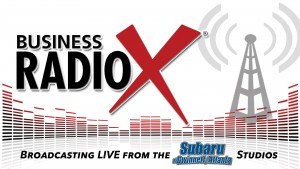
CURRENT SHOWS
ARCHIVED SHOWS
+++++++++++++++++++++++++++++++++++++++++++++++++++++++++++++++++++++++++++++++++++++++++++++++++
*******************************************************
*******************************************************
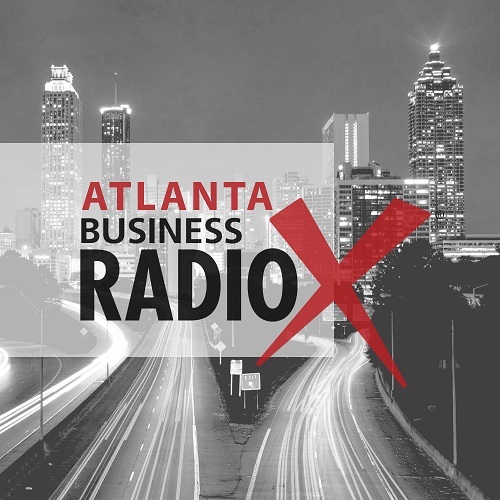
*************************************************************************************************
35,294 Stories Shared On Air by Local Business Leaders
***********************************************************************************************************
Supply Chain Now Radio Webinar_GA_Tech_LEAP_042818.mp4
: Good morning, and welcome to a special episode of Supply Chain Now Radio. We are broadcasting live today from the supply chain capital of the East Coast, Atlanta, Georgia. Today’s episode is presented by the APICS Atlanta Chapter. And we welcome all of our fellow APICS members from around the globe, as well as any nonmembers and guests that maybe dialed in too. We appreciate you joining us.
: My name is Scott Luton. And I serve as your host for today’s session. We’ll tackle what APICS is in a minute, but our session today will focus on the hot topics of talent and workforce development. And we’ll highlight one program in particular that is growing here in the State of Georgia. Our featured presenter today is Mr. Chuck Easley. More about Chuck in just a minute, but, as always, we’re glad to have you with us here today on Supply Chain Now Radio.
: Let’s talk about ground rules real quick. Our attendees will be on mute as we’re looking to optimize the audio experience. And with that said, let’s make it as interactive as possible. So, please do submit your questions with the chat toolbar, and we’ll answer as many as we have time for at the conclusion of today’s webinar. And finally, a PDF of today’s presentation and recording will be sent out in the next few days to each of our registrants.
: As I mentioned, today’s webinar is brought to you in part by APICS Atlanta. For those of you new to APICS, we are the premier industry association dedicated to end-to-end supply chain management. Around the world, our organization serves over 45,000 members. Locally, we’ve been serving the Metro Atlanta area for over 50 years with almost 700 members. We conduct a wide variety of events focused on best practice sharing, professional development, and networking. From an education perspective, we offer widely recognized certifications, such as our CPIM, our CSCP, and our CLTD.
: We’re very pleased to be launching a new education partnership with the Georgia Tech Supply Chain and Logistics Institute starting in July 2018. We’re committed to serving our community and our industry with active task force that’s focused on addressing the skills gap, fostering and advocating for progressive leadership and effective policies of inclusion, and serving our veterans community, especially focused on their successful transition into the private sector.
: If you want more information on how we can serve you or your organization, reach out to our APICS Atlanta board of directors at info@APICSAtlanta.org or visit our website at APICSAtlanta.org. We’re happy to help.
: So, I’ve got the pleasure of introducing our guest speaker today, Mr. Chuck Easley. Chuck brings more than 25 years of corporate and consulting experience to the table. Currently, he is part of the staff at the Georgia Tech Supply Chain and Logistics Institute, where his learnings and expertise help enhance, develop, customize, and deliver programs and courses for the organization.
: He also leads his own firm, EPIC Performance Group LLC, which is focused on strategy execution of supply chain optimization and design, business transformation, operations improvement, and executive coaching. Previously, Chuck has served as a Senior Director of Labor, Engineering, and Process Optimization at Walgreens. And prior to that, he held senior roles with Lowes Companies and Kurt Salmon Associates, which is now part of Accenture.
: Easley has spent his entire career leading and facilitating major change, process improvement, performance improvement. He holds a wide variety of recognition credentials and awards for his work in industry and in our communities. We could fill up the whole hour with all of those recognitions.
: On a personal note, Chuck is highly involved in the Metro Atlanta community. Chuck is a Rotarian, an elder in the Presbyterian Church, and has served on the board for many civic and nonprofit groups. He’s also a certified youth coach motivational speaker, a fitness consultant, and certainly a friend of the APICS Atlanta Chapter. With no further ado, here’s Mr. Chuck Easley.
: Wow. Thank you for that. I’m very happy to be here. And, I mean, to have you do introductions for me all the time, it is very, very humbling. I appreciate the thought and the depth that you went to. And, hopefully, they will have some fun.
: I’m very pleased to be here to talk about what’s happening in the State of Georgia, and specifically, at large, the Metropolitan Atlanta, and the opportunities that may exist for you that are listening to learn more about it, take advantage of it, and possibly figure out how you might support or get involved. A lot’s been going on, as I’m sure you know, because you’re in this particular industry, but I want to share with you just a couple of things that are happening at Georgia Tech that we’re very excited about.
: Often, people say you have to have some kind of an acronym to make something official, to get people’s attention, or as different psychologists might say it, a primacy and recency effect to help people remember.
: LEAP is what I want you to remember, Logistics Education and Pathways. That’s what the program is called. The program is focused on workforce development for opportunity youth, at the age range of 16 to 24, and also veterans. This comes under the umbrella of what’s happening at Georgia Tech is very exciting. There’s a mantra that’s been put out creating the Next. This is a part of creating the Next. What is it that Georgia Tech is doing in this particular arena, and as a whole host of other initiatives that exist? But in this particular one on workforce development, there’s a lot going on, we’re excited about it, and want to tell you about it.
: You can see a website there in the lower left that, actually, you can go to to learn a little bit more about it. And if you have questions, you can reach out to myself, as well as the institute, as well as other contacts that may be indicated at APICS with Scott. Please keep in mind that this is something that has been in the works for roughly about two, two and a half years. So, while it’s new, we’re making progress.
: Georgia, a lot going on. The Governor’s High Demand Career Initiative, one of them that was identified was supply chain and logistics. We have veterans returning consistently, particularly as different conflicts around the world are either diminishing or sometimes escalating, and troops need to be moved in and out.
: Within the state, hundreds of DC’s, thousands of supply chain operation functions all in our state. And the number is going to keep going up. If you look at the State of Georgia and Metropolitan Atlanta, there’s a strong up curve in terms of what’s happening and what the opportunities may be.
: In particular, when we think of supply chain and logistics; and you look at what’s happening with Savannah in partnership with Charleston, as well as with the Atlanta Airport; and, historically, with Atlanta being called terminus; and if you go downtown, Five Points still there, you understand that there is a connection point for moving goods, services, and information, and money coming through the State of Georgia. That is all a part of what we think of when we think of supply chain. There’s a movement of ideas, the movement of money, the movement of product, the movement of services.
: Now, the interesting thing about this is, as I’m sure you may know, you don’t necessarily need to have a college degree to have a successful rewarding career. You can, however, there are other options that exist to have a rewarding, fruitful experience and career in this area, and to get off to a great start with an entry level role.
: This particular initiative, LEAP, is to help with that jump off, that getting off to a good start, and in some instances where people may be looking at a transition like veterans in transition. Sometimes, it’s the language that they may have to learn is different. The principles, the methods, the procedures are hard casts, are very well-known, and can be executed.
: However, sometimes the language, something as simple as going for military time to civilian time, something as simple as how you contract and think of a unit. Is of a truck? Is it a case? What might it be? That vocabulary transition can be helped by this course particularly for veterans. Or those who may not have thought of supply chain logistics as a career path, this helps with that too. But, additionally, they get a sense of the principles, the techniques, the theories, the metrics that exist.
: So, what happened with JP Morgan Chase back in 2015 was under their corporate social responsibility mantra. They were trying to identify where they could have an impact in the community. Workforce development became the area that they wanted to focus on, and supply chain and logistics was the particular industry. They approached Georgia Tech. We partnered with them. We developed a series of courses. We took on the initiative. And then, we launched in February 2016. We started the development fall of 2015.
: What came out of that is four courses. They’re all online. They are self-paced. There are assessments built in because this is a part of the Board of Regents. The University System Board of Regents for the State of Georgia has approved these courses. And as a part of it, assessments needed to be built in. You have a unit that you’ll study, a test you’ll take at the end, a score that you need to make, and then a series of introspective and discussion-based questions that you have to answer. And then, you will be allowed to go on to the next unit.
: Once you have completed the units, all of them, you’ll receive a certificate that has been signed by a Professional Education Department, as well as the President of Georgia Tech. Courses are basically 40 hours to complete. There are no textbooks. It’s written at a 12th grade level. And, again, the minimum age is 16.
: Additionally, we can see the progress of the students. We can see where they may be having challenges. If the student is unable to pass a particular unit test after two attempts, then they get reverted to myself and another colleague, Mike Connor, where we’ll help them from an instructional standpoint to get back on the right track.
: You can take one course, you can take all of them, but look at the first one, Supply Chain Management Principles. That’s the overall course. It’s typically a great one to take if you are only going to take one. It covers all of the components: warehousing, transportation, customer service, so have you.
: The other three are more specific. Of course, warehouse operations looks at that, which happens within the four walls. Transportation, technically, what you think about is what happens outside the four walls. And in, of course, customer service operations is both, what happens within the four walls, troubleshooting, taking orders, processing, some of administrative things as well as once it goes to the customer, is it what they expected? Is the quality of the load there? Did it come in at the time that it was supposed to?
: Again, four courses, very positive feedback. We’ve been administering them since February 2016. And we want you to know about it and think of it in two different ways. Is this something that you may want to use as a component of if someone were to apply for a job at your company? Two, is this something that you might want to have people who are at your company go through to help advance them? And then, I’ll add a third, just in case, from a community impact standpoint, you may want to sponsor or support a particular group or entity that may be ideal for this type of opportunity.
: These components are very critical, and we deliver them in a series of ways. The learning happens online, and by interacting with the instructors, as well as some other things. What you see right now lays those things out. We have a supply chain game simulation. Some of you may remember it as the beer game. We modify it to the potato chip game because we’ve got people 16, 17, 18, 19, 20 taking it.
: We also include industry expert lunch and learns. You know, we’ve had a a general who’s a part of the faculty at Georgia Tech in the ISyE School, who actually comes in and will talk with the students about some of the logistics aspects from a military standpoint. We’ve got other alums, myself, who’ll speak, and Mike Connor, one of the instructors, as well has a history with Home Depot, Coca-Cola, and BellSouth, and others around who are either involved with the school and/or other aspects of the Georgia Tech experience.
: We have internet lab, tremendous lab. It actually is sort of the forethought of what’s happening, the innovation component, if you will. And we have student ambassadors that can share their own personal experiences, and learning, and growth. The one thing about that internet lab, it’s almost like mission control when you go in and you see it. It’s pretty exciting. It has some of the newest thinking ways of what might be possible out there.
: One of the other things that happens with this program is there are career opportunities. You know, we will review resumes, we’ll give some advice, but, ultimately, we want to try to help create a pipeline, a pipeline of trained individuals who improve the level of workforce readiness for supply chain logistics in Metropolitan Atlanta, the State of Georgia.
: We also have a Supply Chain Day where we bring companies specifically looking at bringing people in in the area of supply chain. APICS is a tremendous sponsor of it. We typically have 15 to 20 companies come in, and we tend to do three or four of those a year. We had one that we weren’t able to do in January because of the storm that came through, but other than things like that, typically, we see the three or four times a year.
: But that gives you a chance to engage. It also helps companies that may be primarily looking for undergraduate and graduate students to think outside the box about other opportunities and roles, and bring their personnel or HR professionals in to help channel and interview some of those students who may be in transition between college and high school, transitioning from things like being in the military back to civilian life, or looking for career change.
: One of the biggest things about this program is the employer engagement. Ideally, we will have a balance of graduates who are ready and employers who are eager. One of the goals is to have roughly 20 employers who would want to be a part of identifying and interviewing students who have completed these programs. We’re looking for those now. It’s a great opportunity.
: As I’m sure as you’re thinking about it, yeah, it helps reduce the time in terms of training, the cost. It can help you get up to speed that much more quicker, and it can become a part of your professional development that you may provide for your employees, or it could become a part of the criteria that someone needs to provide when they come in and they interview or they apply for a a particular position.
: One of the things that happens when you’ve completed the course is you do get continuing education credits. It’s under our Profession Education Department. You have a transcript with that department. We, often, do a graduation ceremony. We also try and make sure that people are comfortable and confident in the interview that they may be having for the entry level role.
: One of the other things that happens is, as I mentioned, people are looking to do a career change or even a job change within supply chain. They can focus in on one of these four courses, and it helps give them a credential, more confidence, and improve their ability in the interview process.
: We have stories of success where students have completed a program, interviewed, gone on to work, been promoted in less than a year. And that’s what we like to hear. And we just want that to become that much more the norm. And you can help us.
: Some other things in terms of what the action opportunities may be, to give you examples, Schneider National supported our effort in 2017, and we were able to partner with Covington, and Newton County to drive home some things in that particular county. So, JP Morgan Chase got it started. They helped us build a tremendous foundation. They provided emotional support, as well, as we have tried to expand like go into Covington in Newton County. And even now, with discussions about a possible extension.
: Coming to Newton County though was at a crossroad. They had particular industries that had left the county, the mayor of Covington had a goal of zero unemployment, and they were looking at a gap between supply chain jobs and people who could perform those jobs.
: We met with them, talked about what might be possible, and developed a pilot summer of 2017. We had over a hundred people complete a course, higher than 70% completion rate. And it was met with such enthusiasm that the elected leaders of Newton County and the City of Covington wanted to support a phase two, which we started in March of 2018 after we had a graduation ceremony for those who had completed the course in 2017.
: It was held at the Newton College Career Academy. It was very exciting. We even had a visit from Buzz, which I think add a little energy to the outcome. And there’s a pipeline that has been developed in Newton County and the City of Covington. There’s, additionally, a pipeline in Metropolitan Atlanta. And we want you to know about it. We want you to be able to understand what the opportunity is, what the value is. And if and when there are questions that you have on how you could either get engaged, support it, or be a part of that pipeline in terms of receiving those particular students, let us know.
: A little more detail about what happened in Covington. We expanded it to more than five counties that touched Covington because we found that, in many instances, people may work in a particular county, but they don’t live there.
: So, some of the lessons learned too. We had an open lab that would occur twice a week for about three months, and also once a month on Saturdays. We’re also were able to have students, as they complete a course, be invited to Supply Chain Day, and come into Newton County, who sponsored a career fair, a job fair, that actually was very well received. Hundreds of people attended. And all of it was wrapped around this effort of how do we close that gap in terms of workforce readiness, particularly supply chain and logistics.
: The graduates program, as I mentioned, was March 8th. It was very well attended by family members, by graduates, by city council, members of Covington, and county commissioners for Newton. We’re very appreciative of Newton College Career Academy for allowing us to host the event there, and we think it went off very, very well.
: So, here are different ways. You may be thinking, “Okay, I think I know enough now. What can I do? What’s the do?” Well, here’s an example of different dos. There’s a pilot that we did. Some municipalities, some counties may want to try to do something similar to what we’ve done with Newton County and Covington. We’re open to that. Some may want to just go ahead and do a phase 2 where we’re kind of expanding it and driving towards whom else might be able to be involved. Social media leveraging. Also, partnering with the employers. But if you want to approve the concept first, the pilot is fine.
: Also, in Newton County, there’s a school called RISE Academy, which is to give students sort of a second chance. So, I think any of us that have been on reserve past probably 18 months has either asked for, deserved, needed, required, or really value another opportunity. Otherwise, we’re not learning. You can also have students take it, and they progress individually. We’ve had students from all over the Metropolitan Atlanta area who, on their own, found us at the website, taking the course, some taking many courses.
: But the two biggest impacts that we found are internal cohorts and external cohorts. An internal cohort is basically structured within a particular classroom setting where there’s a routine, a meeting, and there’s an instructor or proctor, and that has a tie to some kind of grade, or outcome, or expectation of performance for that particular student.
: A field cohort is possibility two. JUMA, an organization focused on teaching work life skills and financial independence. Oftentimes, we’ll use this type of model where you may have seen them because those particular members of the organization often run some of the concessions at SunTrust Park or at Mercedes-Benz Stadium. And they’re in a pipeline a process of developing work skill, job skills, and then looking at how they might channel that toward a particular career path after they’ve gotten that foundation.
They, typically, meet at least once a week. And that becomes a touch point for those particular students to help support each other and drive home change. We created study groups with them and captains, which was kind of a bit of a hybrid, which I think helped a lot.
: Also, with Newton County and Covington, in our pilot, we did a little bit more of a hybrid too because those two sessions during the week with Newton College Career Academy, we had proctors there, as well as instructors, like myself and Mike Connor, who can answer questions, help them through the coursework, but everyone that was a proctor had taken the course to find new material. And we could provide hard copies of the course if getting online was a bit of a challenge.
: As I mentioned, you saw some of the high schools previously that have been a part of this. We’re looking at approaching other high schools in different counties, different areas. We’re open to anyone who may have an interest in helping with that, particularly, if you have a STEM program or CTAE program.
: Here’s some of those stories that I was mentioning earlier. Abe Cheung was a student at high school, a senior, completed four courses, started working in a purchasing role before he graduated from high school. David, took a course his senior year in North Atlanta, applied for a role at the startup of Delta Material Services. They saw that he had taken the course, called him in for an interview. He started working before he graduated. Devyon Johnson is a part of JUMA. He took the course, started working at UPS during the holiday season. And in less than four months was promoted to supervisor.
: Overall, since we launched 2016, over 350 students have complete a course. Our completion rate is right around 70%. We found that, typically, a little more than 10% of the students will take more than one course. As we’ve talked with them, we’ll meet with them and talk about the fact that the course helps them build confidence, understand not only what they’re talking about, but when they interview, the questions that they ask, and the reaction that they get from the interviewer demonstrates that they know the material, the content, and what the work would involve.
: And once on the job, the ideas they come up with, the ways in which they work through certain things drives home the fact that, not only are they well-prepared, but they’re very knowledgeable, and they’ve learned how to apply the learning.
: One exercise, for example, I would do with some of the JUMA students who would run the concession stand, is talk about what happens when you you run out of food? What happens when you run out of certain things at a particular event? How do you manage the customer? How do you manage the process? How do you go back, and improve it, and understand how it can be done better? How do you manage inventory? How do you make sure that you don’t necessarily run out? How do you have some kind of an expedited process where if you do, you can quickly refill? All parts of supply chain logistics.
: Additionally, some of that coaching that we may provide. A counseling help students channel what opportunities may exist now that they’ve completed some of these courses, but also different things that they might be thinking of as sort of their next step, thinking out the box a little bit.
: One of the bottom-line things that we found is, you know, I’m sure of all of us have heard different phrases like, you know, “It’s not your dad, such and such. It’s not your mom, such and such, or the one that your granddad or your grand mom had before,” you know.
: So, supply chain and logistics is not what your professor may have thought about years ago. It’s not what your family, or your uncle, or your great-uncle may have thought about years ago. What they thought about years ago still exists. It is so much more than four walls with cartons. We used to joke around and say, “You’re kicking cartons,” right.
: Well, right now, you’ve got something that looks like a transformer that might work with you, depending upon what industry you’re in. It’s really cool, it’s exciting, it’s constantly evolving, and it goes from concept to consumer. When I was with KSA in our supply chain group, in our innovation center, that was one of the core things we talked about is from concept to consumer.
: So, now, with all the different avenues from when it used to be … Remember, the old mail order thing in the comic book, Scott, where, you know, you can order the onion gum or something, and they would come in six weeks or whatever? Okay, now, you got necessarily … Well, you could order the onion gum, and it will come to you in two hours.
: Right.
: Okay. It’s still logistics. It’s still supply chain. It’s just that the time has shrunk, and the expectations of the consumer has changed.
: New demands.
: New demands. Many new demands. And how is it we can be dynamic and be reactive, but, more importantly, be proactive in this arena? And that’s just to say we’re excited about this in helping people understand that you can actually find rewarding experiences outside of what you may think traditionally is supply chain logistics.
: The Supply Chain Days that I talked about earlier, here’s some examples some of the companies who have come. Some come every time, some come half the time, two out of the four times that we do it, but this gives you an expanse. If you are interested in your company participating, you can contact us. There’ll be contact information at the end of this. And we’ll be glad to have you. The next one is going to be in September. And we’re looking forward to it, and hope to have a standing room-only crowd.
: You also see here some of the companies who, in addition to those who are looking for undergraduates and graduates, who tended to also look for some LEAP graduates, having their personnel department or HR professionals come in, and help identify, and set up interviews for these particular individuals as well.
: In some instances, it’s the first time they’ve been in a forum like a job or career fair such as on a college campus. We do it at Industrial Engineering School, the Stewart School of Industrial Systems Engineering at Georgia Tech. It’s very well received. But that’s a part of the expanse of the learning too. Some may think they may want to come to Georgia Tech as well after that experience, others may want to pursue the opportunities that exists with the credential that they have, but the door is open for either one.
: But, also, it’s not only lets them expand their eyes on what’s possible, but also those particular employers. And we’re very eager about identifying who might be available and willing to be a part of helping channel and be the other end of the pipeline for these particular students.
: Now, there’s different ways to sponsor this or be involved. You can do it at a general level with the benefits of going through the program to overall help drive different things that we’re trying to do like what Schneider did. There’s also dedicated sponsorship where you may identify a particular group. It could be Girl Scouts. It could be Boy Scouts. It could be the youth or junior achievement organization at a particular high school. There are many different ways to think about it. It could be veterans in transition, whatever it might be. Sometimes, you may want to focus on helping a particular group.
: And then, also, there may be individual benefactors who would want to help within a community, but also some companies that are saying, “Hey, we’d like to offer this to our employees, and make this a part of what they’re doing for their overall development,” or “Hey, we have a startup coming, and we need to hire significant amount of people where we’re going to train them on our methods and procedures, but we want them to have a basic general understanding of what’s going on and how the processes work, why they’re lined the way they are, and what’s happening upstream and downstream.”
: Anyone of these three are opportunities. And if there’s something else you think of, we’d be open to hearing that. But think about them, and consider if you’d like to touch base with us about how you might get engaged or get involved. We’re excited about it. We want people to come. We’re looking at making a difference. We really, really want you to be a part of what Georgia Tech is doing, and what the State of Georgia is doing, and what many people in our state need: a chance, an opportunity, hope, support, and preparation.
: You know I had to put that in, Scott. I can’t resist it. But what’s the next step? What are you doing?
: Right.
: You like that. It’s a good thing. Smile about it. Enjoy it. Be a part of this. This is something that is helping Georgia get on the map. Other times, we talk about it, but, hey, if Georgia is known for the film industry, if we’re known for Coca-Cola, UPS, Home Depot, what have you, and maybe the A work, you never know, but why can’t we be known for supply chain and logistics? We have it, but why can’t it be a marquee state of choice, municipality of choice, a destination for companies as they’re looking to gain that competitive advantage from a supply chain and logistics standpoint?
: Here’s some other opportunities that exist at Georgia Tech in terms of ways in which you can engage. We’ve got eight certificate programs. The ones I was talking about earlier are four, but if you have a different level of management, more advanced or senior, and you’d like for them to kind of advance that learning, we have some other things that may be helpful for them.
: Additionally, these courses are, typically, online in Spanish and English. We have Capstone projects. Some companies are looking to address an issue in their company, and they’re trying to figure out, “Hey, can we get some resources and expertise come in and help us solve this that’s part of the graduation process with students at Georgia Tech?”, we’re open to that. We have innovation network for members who come in and want to just learn about the newest and latest things, and also share learnings with others.
: And also, we’re more than willing to help identify people who may either want to pursue degree programs, or in terms of the Georgia Tech students come in and just see a part of if they want that experience. But all in all, this is special. We’re excited to have it going on. We hope you’re a little bit more excited or a lot excited and want to know more about what can be done, how, when, and where. And we’re available to help you do that.
: LEAP into the future. You can google us. Here’s the website you can go to learn more about the program. And we look forward him from you.
: Thanks, Chuck. Well, on that last note, you’re going to hear from some of our attendees here today.
: Look forward to it.
: We’ve got some questions teed up, but, you know, before we pose a couple questions to you, I do want to-
: Sure.
: … share. You know, our mission at Supply Chain Now Radio is really to spotlight the best in all things supply chain. And clearly, the Georgia Tech Supply Chain Logistics Institute’s a world-class institution in the supply chain space. And, personally, and I’m very partisan here, but the LEAP Program is one of the more practical workforce development opportunities, not just a program, but a huge opportunity for employers, cities, counties, you name it.
: Absolutely.
: So glad that, from an APICS Atlanta perspective and really from a Supply Chain Now Radio perspective, these are types of initiatives we love to support.
: Thank you for APICS’ support. You’re very helpful.
: You bet. All right. So, first question here, Chuck, comes from Dave. And Dave asked, “Chuck, what are some of your key lessons learned from your experience with workforce development?
: I’d say one I mentioned a little bit early, and that is you have to think about two things. How do you find and engage the potential student? And then, how do you help them progress? To that end, the internal and external cohort was something that we developed after about eight months of really focusing more on individual participation. And we saw a 7x increase in completion percentage success.
: Wow.
: And that’s something that … You know, those numbers are beyond staggering. Well, we know that was fundamentally a change that we made, and it drove toward a couple of things. People have a goal as they complete if, you tie it into something like in a classroom or what have you. Additionally, there is an excitement because if you can create kind of support groups that can help each other, one person may feel more comfortable at one concept than the other.
: And then, we can more easily track and reinforce because if we create a cohort, we can look at that cohort as a subset of all students that might be taking, and that proctor can, then, follow up with them individually as well.
: I’d say the other thing that we’ve learned is this idea initiative of workforce development is like a series of links in a chain. And the education training part is a part of the chain. And one of the things that I think happens over time is it’s very similar with what you see in business where senior execs may say, “We’re having issues. We’re having difficulty. We need a new system.” They get the new system, Scott. And what happens? Right. It’s just part of the horizon.
: Part of the horizon, yeah.
: It’s like, why isn’t the egg boiling, okay? We put water in it. We got a new pot. We turned it on. Why isn’t the egg boiling? Well, one of the things that happens is what comes with a new system is training, thinking upstream downstream with the different processes, and procedures, and the overall impact, you know. And if you don’t look at it that way, effective change can’t happen. It’s people, process, and systems.
: And so, workforce development is no different. You can have the education and training, but if you’re not able to access, and identify, and assess the particular candidates that may have that interest, that’s a bottleneck. If you’re not able to, also, identify employers that are willing to engage, interview, and provide opportunities, and really connect to those pipelines, once the education changes happen, that’s a disconnect.
: So, on that note, Chuck, when it comes to employers, is it fair to say that since the LEAP Program has launched, one of the areas that the team behind LEAP would really like to see grow is the number of employers that really see this for the resource, and the opportunities, and engage, and support?
: Yes, absolutely. Absolutely because we think it’s at a … We have a critical mass. We’ve got over 300-350 students who have completed a course, who are ready to kind of … Like the Kentucky Derby that’s coming up in a few weeks, they’re at the gate, they’re ready to go, and we want to make sure that those gates get open, and they can run.
: We’re looking to identify those partners, and are more than willing to engage with different companies and organizations to see how we might be able to make that a fruitful connection and make it one of our top priorities for 2018.
: So, you get 350 students that have shown the initiative to seek out this program-
: Yes.
: … to participate, to add to their skill set. So, for employers that are struggling to find these types of-.
: Yes.
: …resources, reach out with Georgia Tech. Yeah.
: We have a solution. Reach out to Georgia Tech. We have an answer to your problem. Sometimes, it might be a symptom, but we like to get to the root cause at Georgia Tech. And we think that this is a good way to solve that.
: The other thing I would say is that what’s hard is if those channels, those systems, those processes exist, particularly once you completed college degree; yet, there’s kind of a gap when we think about the opportunity youth and the veterans, where if we think about it like from a college experience or something like that, you may have completed your degree, graduated. A part of the institution handles that part, but all those may have remembered when we got that call either after graduation or halfway through our senior year when either a guardian parent and/or mentor said, “So, what are you going to do after?” And after, there was a long silence.
: Probably within the next three hours, we walk across campus to the Placement Center, and discovered what was going on. And that center was there to help with that next step. The challenge for the opportunity youth and those veterans in transition, in many instances, they can’t walk half a mile or quarter a mile and go to the placement center. So, the distance is greater.
: And also understanding that that’s a resource that’s available for them. And so, what we’re doing is creating that bridge and looking for those potential employer partners to bridge, not only that gap, but could create a much better connection point from when they get the accolade and the achievement of completing the course, they get the reward of the interview and opportunity to apply in a job.
: Okay, perfect. And so, to our audience, whether you’re an employer, or a county, or a city, or a school, or some other entity that has a vested interest, and we all have a vested interest in developing opportunity youth and in other aspects of our workforce, there’s four main areas you can plug into the LEAP Program.
: Number one, if you want to utilize LEAP program as your own boarding talent and give them a firm foundation for a supply chain, logistics, warehousing, that’d be an outstanding opportunity. Number two, you can develop your current team with the LEAP Program, give them a common language to rally around, right?
: Exactly, exactly.
: Number three, access to the pipeline. And so, Chuck mentioned 350 students have come through, and it’s growing. This phase two is starting to heat up. So, reach out to Georgia Tech, and maybe identify some folks that you want to interview and speak to in person. See if they’re a good fit for your operation.
: I can say right now, even like in the phase two in Newton, we’ve got roughly 80 people who have applied just since the early part of March. And about half of those have gone through the registration process as well. So, you know, the number is growing.
: I want to circle back to Newton in just a second. And number four, if you want to sponsor a group. You know, we’ve talked about veterans. This should be a great program, especially for first-term veterans that get out. And we all know of some of the challenges related to successful transition. But if you want to sponsor a certain group, or a search school, or you name it, reach out the Chuck Easley, and we can figure out a way to make that happen too. So, circle back to Newton because Newton is a … They were an early adopter.
: Yes, right. Very progressive and very innovative. Great pioneers.
: So, Mayor Ronnie Johnson over there, which you mentioned earlier.
: Marcello Banes, Ralph Staffins, President of Chamber.
: Yup.
: As was David Bernd-
: David Bernd.
: … whom you introduced us to, the Head of Economic Development.
: Special group, and Serra Hall, also big part of that group. So, early adopters, progressive leaders. They saw huge opportunity before a lot of folks. You know, very few counties jumped in with both feet like they have. Talk about what they saw.
: It was a great meeting. You had set up a meeting with myself and Dave Berndt, who’s Head of Economic Development. We talked, kind of brainstormed, understood what their needs were, what the pain was, and felt that we had a remedy. We met with a group of stakeholders, including Tim Smith who heads the CTAE Program, who opened up the Newton College Career Academy for us, and understood the connection. He even went and took one of the courses online just to kind of get a base and a feel for what the value would be.
: It was one of those moments where things come together so well. What we were talking about with them and what they were needing, the issue was not about what we’re going to do or why. It was when. And pretty quickly, it was April 2017, we came up with a marketing plan. We came up with a launch. We came up with a kickoff event at the the Old County Courthouse that took place in mid-July. And we were off and running.
: The people in the room were very open, and willing, and committing things like, “Hey, we can do the tutorial sessions,” or “We can have some of the sessions at the Newton College Career Academy. We want to make sure people have access. We can make hard copies available to people.” All of those things were driven by, “What can we do to help the community?”
: You know, Ronnie talks about … Ronnie Johnson talks about — the mayor of Covington — zero unemployment, and how do we get to that. And they also could see, they had the vision to see other things that were coming like Three Ring in terms of film production and other things that they would need to make sure they had that ability, and they fully grasp the depth and breadth of the supply chain industry.
: So, special group in Newton. 80-85 folks ready to go. So, if you’re in that area, that I-20 corridor maybe, reach out to Georgia Tech. They can help facilitate some of those great interviews with some of the great candidates.
: We, actually, have a total of over a hundred because we did the pilot.
: Okay.
: And so, yeah, we’ve got over a hundred from the pilot, and we’ve got 80 who have now applied in the last month or so for this next phase, and about 30, for about half of those, have actually started taking the courses.
: Wow.
: What a great success story early on. And, of course, there’s going to be a lot more ripple effect in Newton County as a result of the LEAP Program. So, broader picture, we probably both want to give a big high five out to Chad Moten and the whole JP Morgan Chase team, right?
: Absolutely.
: It wouldn’t happen without their vision, without their impetus. And Reinhardt also inside the development group, you know, really … with the foundation, really kind of drove toward what can we do to make a difference. I think, the key is when you come with that particular initiative or that thought process, and identify a partner to help you with it, not only did they put the elbow grease into it, but they also put the funding into it, but they also put the follow up into it.
: And, you know, Chad and those who have been very supportive and coming to all of our kickoffs, all of our graduations, and telling the story about why JP Morgan Chase did what they did, what the hope was, what the lasting impact would be. And also help identify some potential employers, which I think is a is a tremendous example of their commitment. And it’s a different kind of what I kind of call … what you call active social responsibility, or what you call dynamic community involvement because they did much more than write a check. Basically, they understood what-
: They wrote a check though.
: They wrote a check too, which helped get it started. But then, once they wrote the check, they were still involved. And that’s one of those things where I think when you have that happen, you always like the check; yet, when you have that additional involvement, you do have a sense of partnership.
: Sure.
: And I’ll give you an example. So, yesterday, we were in Livingston Elementary in Newton County. And to illustrate exactly what you’re saying, Chad Moten was there.
: Yes, he was.
: He was sitting down with fifth graders-
: That’s right, talking supplies and whatnot.
: And he had a blast.
: Okay.
: He had a blast. He couldn’t stop talking about it, you know. He not only enjoyed being there, but, to me, the light bulbs went off. And all of a sudden now, you can sit there and go, “Okay. In 10, 12, 15 years, these students will be entering the workplace.”
: That’s right.
: And then, more importantly, look at how differences are being made right now. And then LEAP also helps from a standpoint of bridging that gap for those who are not necessarily in elementary school who are going to get that kind of exposure. It’s kind of a both end.
: That’s right.
: And now, you know, check him out when he tells the story, but he was very, very engaged. So, a different kind of investment. Investment of their time and energy.
: And showing up.
: Yeah, that’s right. Yup.e
: Well, good deal. I could sit here and talk with Chuck Easley for hours on end. I really believe in what the team over there at the Georgia Tech Supply Chain and Logistics Institute is doing. They’re moving the needle. They’re creating a big contributing factor in the economic engine that does make Georgia the number one state to do business in. What? Five years in a row now, I believe.
: That’s right, and counting.
: And counting, that’s right. From an APICS Atlanta perspective, we really appreciate the partnership that we’ve established for several years now. We’re looking forward to what’s next in that partnership. And Chuck, thanks for being on-
: Thank you.
: … Supply Chain Now Radio here today.
: Georgia Tech’s excited to be a part of this. I think the thing to make sure we keep in mind is the faculty constantly looks at innovating and updating the the courses based on what’s happening out there. You know, the faculty’s been ranked number one for over 22 years of graduate and undergraduate in this arena. And we continue to put our thought leadership into the courses. We’re excited about helping Georgia be that destination state of choice when you think about supply chain and logistics. Why not? And go jackets.
: Okay.
: I couldn’t resist.
: That’s right. A great way a great way to wrap up. So, we’re going to make sure you have Chuck Easley’s contact information in the follow-up information that goes out. And we’re going to conclude our session on just a couple of final items. First, we’ve invited each of you to join us for one of our upcoming webinars sessions. We’ve got a whole host of different topics we’re going to be covering in the next couple of months from advance analytics, to tackling the Amazon effect, to omni-channel, reverse logistics. Chuck could probably speak to most of these topics, but we’d invite you to join us for some really interactive, very practical-
: Those are great topics.
: … webinars. That’s right. Those are great topics.
: Guide your decision process and makes you think differently.
: Secondly, if you like to volunteer with APICS Atlanta, we’re going to be back out Newton County on May 16. As again, we’re taking a team of volunteers out into, I believe, it’s Fairview Elementary School, to share a one hour Supply Chain 101. Again, here, we’re just planting seeds of awareness about all things supply chain with elementary students.
: Elementary?
: That’s right.
: One thing that I think, to that point, Scott, that’s pretty important is I talked about the supply chain game, the simulation where it’s called the beer game. We, now, call it the potato chip game.
: That’s right.
: But it’s taking that and those concepts, and pulling it back downstream to an earlier learning moment, which connects the dots, and gets people and students think about that differently. And, you know, when those students went home, they told their parents, or the guardians, or what have you about what they just learned.
: Absolutely, yeah. Since November, we have presented Supply Chain 101 to over 400 students as part of this growing program. We would take it to all four corners of the State of Georgia, and looking forward to being back out in that thought leadership capital of Newton County, Georgia. So, thirdly-
: Movers and shakers.
: That’s right, movers and shakers. Again, we want to talk about our new aspect to our current partnership with the Georgia Tech Supply Chain Logistics Institute. We’re really excited about hosting and facilitating our CSCP and CLTV training on campus here in Atlanta starting in July 2018. So, this is going to be a two-and-a-half day boot camp style session. So, rather than-
: So great.
: … the five Saturday sessions that we’ve had in the past, which takes some time, and you go up your weekend, you can fly into Atlanta in the world’s best greatest airport.
: Absolutely.
: Spend two and a half days at a world-class institution.
: Even with the varsity.
: Even the varsity, absolutely. A couple times even.
: You got to do it. You got to do it.
: And then, fly out with your with a credential certificate from Georgia Tech. And then, of course, you can take the exam when you’re ready, but great, great opportunity for supply chain professionals who want to add that credential.
: So, for more information on any of these things, you can, again, reach out to us at info@APICSAtlanta.org or check out our website, www.APICSAtlanta.org. And, of course, if there is anything I can do to serve as a resource for you and your organization, please don’t hesitate to reach out. So, Chuck, before we conclude today’s session-
: Yeah.
: … final thought on your end.
: I would just want to say that APICS is doing a great job in pushing the envelope in the community, in the State of Georgia. We’re excited to be a partner with you. Additionally, hopefully, you’re excited about what we’re doing at Georgia Tech and creating the Next, particularly in this arena. If you’d like to be a part of it, learn more about it, and help make the difference. You know, this is not a passive state. This is not something where we just want to watch things happen. Like you had a coach who used talked about don’t watch the paint dry. Everybody wants a part of it. Don’t watch the paint dry or the grass grow.
: Right.
: Right. So, what are you doing to help move the needle? If you’re already doing something, fantastic. If you looking for something additional to do, please reach out. If you’re looking for something new to do, please reach out. Or if you’re looking to redirect, I think, we can help you. Again, we’ve got a pipeline. That pipe is going to continue to grow. And we want to make sure that we are linking those gaps and those partners such that, yeah, I don’t see any reason why we shouldn’t say Georgia is the state of choice for supply chain and logistics, and particularly Metropolitan Atlanta, and the best qualified, capable, and ready workforce exists in the state.
: And if nothing else, it’s, at least, worth a single conversation to figure out-
: Absolutely.
: … what makes sense. Okay.
: Change doesn’t happen without a conversation.
: Absolutely. You got that locked. Okay. So, as we wrap up today, we want to give a big thanks to our guest speaker, Chuck Easley-
: Thank you.
: … and the Georgia Tech Supply Chain Logistics Institute. Great presentation, straightforward, transparent, very helpful perspective, great resource for, again, any entity, organization, employer, city, county in the State of Georgia. We’d also like thank our sponsors, APICS Atlanta and Talent Stream. Of course, a big thank you to our audience for participating.
: On behalf of Supply Chain Now Radio, this is Scott Luton concluding today’s special episode out in the field where it’s all happening, going into the gemba, making it happen.
: That’s right.
: Have a wonderful week. We hope to reconnect again with you real soon. Thanks everybody.
*******************************************************************************************************
brandonsmith_embracethebracket.mp4
Broadcasting live from business radio studios in Atlanta Georgia. It’s time for Atlanta business radio spotlighting the city’s best businesses and the people who lead them.
Welcome to the Atlanta Business radio show. Stone Pétain here with you my cohost Lee Cantor visibly absent. He’s on walk about what your faithful servant. I am here to bring you the best and brightest from the Atlanta business community. This segment is going to be no exception. Please join me in welcoming to the broadcast the workplace therapist and also a professor at Emory Business School. Mr. Brandon Smith how are you man.
Stone I’m great. A lot of pressure. You set the bar high. I’m a little nervous.
Well we always go in and in post and we can make the intro where it says hey I’ve got this guy named Brandon let’s talk better.
So I feel better already.
That’s plan B. What an interesting moniker the work place therapist. Tell us a little bit about what your thoughts are doing for folks.
Yes I really wear three hats in the world so one of my hands is I teach at Emory University at the business school and all the areas of leadership in management communication for the fool for all the MBA programs. So the full time MBA evening MBA both executive MBA program is executive. So simply put any class it has to do with playing nice in the sandbox. That’s the stuff I teach. So everything from change management to culture to difficult conversations. Just getting folks to work better together. That’s one when I’m not doing that. I’m a practitioner I’m out in the world as an executive coach so dealing with leaders of all different levels all the kinds of organizations on the same issues. And then my third hat which is the workplace therapist is really about just trying to put out content whatever kind whether it’s blogs podcasts to help make the world a little less dysfunctional. And so all three of my hats fall under one big overarching purpose and passion for me and that is to eliminate all workplace dysfunction everywhere forever.
Well that’s a noble objective but it seems like those three things would really serve each other. You learn something on arena that really impacts the next show.
Yeah because so when I’m in the classroom. So like the full time MBA and evening MBA are about the same stage in their career about 28 years old. So it’s this great kind of listening and contest market for me because I’m like OK so what’s going on what do you all see and where your headset and then the execs move up the chain. And so you get different perspectives and so then when I’m working out in the world I kind of know what’s go. I get a sense but then when I’m out coaching somebody I can say Oh yeah well let’s take this put it in the classroom. So absolutely they all swap around.
So I suspect and rewrite you a check every so often every so often they do.
So you’ve got that covered. But then you’ve got to go out or someone has to go out and generate these relationships and generate opportunities to serve in the other two places right as a workplace therapist.
Yeah. So my workplace there Pacino so and by the way I’m actually so I really am a workplace therapist. The clinical therapy background as well as an MBA.
My goodness my version is a Reese’s Peanut Butter Cup that somehow those two things work together. I’m not quite sure how.
So how does the whole sales and marketing thing work for a guy like you. You’re so busy and really sometimes in this consulting world it can get a little crowded.
So how does the whole sales and marketing thing work from from that perspective. So much of it is referral. I mean it’s such a word of mouth kind of kind of business so.
So I’ve been doing this in the Atlanta area for 12 years now on my own in addition to and about Benchley picking up and doing the teaching as well. So that’s just kind of been a word of mouth that’s built. And then all the stuff I put out on the workplace therapist which is my blogs and podcasts is free content I put out. But the way social media works is that up serving as marketing. So in my heart of hearts I’m not much of a business developer. I’m not very good with you know hey don’t you know somebody elected. Will you please connect me. It’s just not my thing. I like to put out content to help people. But I think while I’m not a very good business developer I’m a better marketer.
So I think that that somehow that’s how the thing works.
I think I don’t really know if it works. You know I think that’s why I’m not really sure.
Well you must be incredibly organized though. Do you have a discipline where you block block out specific pieces of time.
Look I’m going to work on this today or this week or that. What is your idea.
I used to do that every Monday. I would blog every Monday morning I’m logging a lot less but now I have days where I do podcasting and cop walk out those times. Yeah I do. And then when I’m traveling and I’m flying by my plane time becomes a lot of my kind of strategy.
Oh well there you go. All right. So you’ve mentioned podcasting a couple of times. You’re sharing other people’s park guests you have your own podcast. I have my own. Well let’s talk about that so you’re interviewing other people are you mostly sharing your a little bit of both.
I was interviewing I when we started since this year.
So this Dekker’s like fresh so you know interviewing other people anybody monkey could do that. We all know that
In some ways it’s a little bit easier really is right because there’s been more of a request to say well hey will you put out your own content.
Where you actually you talk about kind of what your views are in the world because I’ve got a little bit of an odd perspective I guess.
Well we’ll see. Well we’ll see. We’ll see. We’re about to find out. All right. All right. But you’re interviewing other people so you do a little bit.
Well I’ve been primarily interviewing now I’m going to switch the hat and start adding a little more just me and see how that works.
Well there you go.
All right so is there a Web site where people can go and if they just go to it they just go to the workplace therapists. So the workplace therapist.
I’m the only one so if you google workplace therapists that’s it it’s me. And so you’ll find my site and then in that site there’s a link to my part podcast the brain Smith show.
Ok so obviously I have a bias and I have my own opinions but I’ve got to I want to know from your perspective why did you choose this medium as one of the platforms to to share content what drew you to podcasting.
I think that the number one reason is the thing I hear with every audience I talk to audiences are all the classrooms I’m talking about coaching. The number one most precious resource for people is time. And so what people are why they’re being more drawn to venues like this and and channels like this is because they want to be able to listen to stuff while they’re in motion. So they’re they want they want podcasts to be able to listen to other commute again or while they’re working out or something in the background while they’re doing other things. And that’s that’s a different kind of medium than say my blog.
So that’s that’s that’s kind of why what a great answer because we’ve been asked here to Business Review Network particularly Lee Canterlot and myself when we’re talking to folks on the on the business side of what we do where they might underwrite a show and the last will do you do video. And we say no we go into this long involved conversation but I think I learned something just now. This is great for people in motion. People who want to learn whether and motion because that that takes reading and watching a video on the tape.
Absolutely and think about in theirs.
This is good and bad about this town over the last couple of years. The bad is I’ll start with that. The traffic has gotten to all time. I’ve never felt it is so regrettably horrible. The good the opportunity is that opportunity to be learning and listening something of quality while you’re sitting on 400 or 285 or 85 or whatever whatever the road happens to be that you happen to be sitting on. It’s an opportunity to be able to hear and listen things that you couldn’t do with a blog or a video.
All right I’ve heard enough now to know that when we go off air you don’t need to talk about you being a correspondent because I think we could do some really cool stuff together.
But today we’re going to talk about March madness because you have some very specific ideas and recommendations on this whole idea of I think you call it embracing the black race the bracket. OK. OK so speaking of bracket did you fill out a bracket. I did.
And it is so destroyed and I follow the my wife and I are big fans of Mike and Mike and the skinny one Greaney he believes in sheets of integrity right he says fill out one cheap.
So I filled out one sheets of integrity that it’s really good.
I filled out once it’s destroyed I’m horrible. My wife has gotten 17 sheets so she’s doing good on some bad on others so yes I have filled mine out OK so I’ve got something in front of me.
And it says if you research your bracket if you research it you get a perfect bracket your odds one in 128 billion. Oh my. That was 128 billion. If you research it. Yeah yeah. So yeah my brackets also are so blown up. But what I love March Madness. I love it not only for the excitement that it brings but I love it for the opportunity for employers because it’s just such a great opportunity to create excitement in the workplace bring people around and even people. Another nice thing about it is you can be a knowledgeable follower of college basketball or you could be a novice to pick teams based on color and you’ve got just a good a chance that’s closer to me. And I love that. So such a ripe opportunity. And on top of that with employers today and workplaces today everyone’s so stressed everyone’s got so much going on and there isn’t a lot of fun or opportunity to really do fun things together. So you’ve got this game already teed up for employers. All you to do is hook onto and it’s right there. So I just I love it for so many reasons.
So how would you set it up. Would you set it up where teams build a bracket or would you have individuals do their own and would you maybe offer some sort of grand prize or I guess the options are limitless right now. Well you’re talking my answer wants to be yes
But you’re exactly what I prescribe.
What I’ve been prescribing to employers and it’s not too late by the way. Even though we have it right it still. You can hit the reset button and start a new set of brackets is going to kind of give everybody a fresh chance.
But what I love is allow people to felt individual brackets but the award should be for the whoever it department wins they get some kind of catered lunch. So most Zoe’s Chick fil A you name your kind of food place but it’s so the individual gets a chance to root for herself or himself. But the winner is the team. So even if I get knocked out I’m cheering you on because I’m hungry and I’m like oh let’s go. I would love some lunch. It’s a great way to bring people together as a team but also allow individuals to take pride in their own things. So you get a little of both.
So I mean you could do it right now. You mentioned you could hit reset. I’m thinking even for the business Buick’s team here for all of our studio partners and all the people that help us put these broadcast together we can do. March Madness Mulligan.
Oh I like that. You like that it was cut. It’s not an alliteration right. That’s that’s nice. You could keep that if you like like that but you can get a little set up right now. March Madness mullock will you go. That’s for say three times. It’s all right.
So you’ve talked about how you think it’s a great idea. Have you implement it or do you have an example with someone that’s taking a shot at it chapatis yeah I’ve seen several different organizations and teams do this and it’s just great.
It’s just fun. It’s a great way to lighten the mood and frankly what disappoints me is I don’t see every organization doing this and their rationale for why you shouldn’t do this is so faulty and wrong that it just turns my stomach.
So what is your favorite part about the work that you do is coming up with innovative ideas like this is it. What’s the most fun for you.
So I’m I’m very passionate about what I do. And it came from my first job out of college and I won’t go into that but that story right now. But I’ll tell you I had a really horrible boss and during that experience I realized a couple of things. One of the things I realized was work should be a source of fulfillment and purpose and rewards for all of us. It should not work should not have to suck it
Should not to stop. Well is your next book it works or not. So it shouldn’t. And
So any opportunity that we have to make work what it’s supposed to be is really exciting to me and even the idea of retirement while we talk about retirement that’s a pretty modern concept is actually a novel concept that’s not human history. People don’t retire and there’s a whole whole line of thinking that that work is a meaningful purposeful thing. So to a side note to this there’s things there’s a study called The Blue Zones Project where they study where in the world that the greatest concentration of centenarians 100 year old people walking around. And they found it they found pockets in Okinawa Japan Korea Korea Greece Nicoya Costa Rica a town of Northern California a little pockets and then they ask well why and beyond the usual suspects of good health. I mean good diet exercise and community. We found that every person had a purpose. They had a reason they got up every day and work. Is is it can be a form of purpose for us. So I do this to help people really unlock that opportunity to find purpose and meaning and work and not have to be so messy. And so it needed the opportunity that I came to clear out the messiness and make it be what’s supposed to be gets me fired up every day.
Well it has to be incredibly rewarding work. I mean I can just I can see it because you’re in the studio and I know our listeners can just hear the pure joy that you experience just talking about it much less when you’re in the thick of it and doing it. Now you skated by a of backstory but it’s my show so we’re going to dive in there. Yeah. How does one land in a spotlight this you have your business professor. You’re doing all of this blogging and podcasting. You’re out as a practitioner serving organizations. Yeah. What’s the backstory.
Tell us a little bit about that career path. Because I bet it’s not a straight line. No it wasn’t really a straight line. It was sort of but it wasn’t in the beginning. I’m the youngest of three boys. I have two older brothers who are both adopted. So I always tell people having two older brothers that were there were a lot older than me 12 and 11 years old. Oh wow. So I tell people that I know what the inside of a dryer looks like.
The older brothers do little brothers.
We kind of bounced around. My dad worked for paper companies went from paper mill town of paper mill town and eventually settled down in Atlanta. And as I was growing up my oldest brother Chris was in and out of jail had a lot of issues with drugs. So in and out of rehab centers or jail. And when he was at home it was really dysfunctional kind of it just wasn’t really good. And so when he when I was 10 he took his own life. He just said that’s just that’s just really he was just he’d had enough of life and he checked out and then about six months after that I came down with an uncontrollable stutter so I couldn’t speak in public. So and this was going into middle schools everyday before middle school I’d go see a speech therapist and work on my BS and work on my team and work on my piece. And then I go on to going to school and having a. I would not recommend having a stutter in middle school. It’s not it’s not the that that’s got to be a little time. So between the way kids were stutterers get treated and my brother and all that I decided I made kind of unconscious or conscious choice that people were way too messy way too dysfunctional and didn’t want to have anything to do with them basically made myself kind of a world class wallflower distance myself from people and that went all the way through middle school and high school and then went off to college and ironically a Matrona communications.
Not quite sure how how believable.
Yeah and ended up going on to any good communications major. I couldn’t find a job after graduation so I took a job at a small chain of retail stores that was family owned and privately held. And that’s really where the spark of my story began really where the purpose started. And my boss was the son in law of the business. So the woman who started the business her daughter Mary this guy he’s my boss.
So he greets me the first day of work at the door and he says I’m so glad to have you here you’re going to be dismissed as manager of the store before you get started. I’ve got a task for you. I want you to go in the back room and waiting for you in the back room is the current assistant manager of the store. But he doesn’t know you’re coming.
It’s your job to fire him and you get his job. And that was how my boss rolled.
So he’d come in he’d say Yeah Susan upfront I don’t like what she’s wearing.
Fire her and I did more more layoffs in the first six months of that job than any other time in my career. And I that experience really kind of woke me up made me realize three important things. One as we talked about work should not have to suck. We can’t always choose our families but we can choose our workplaces. We have a lot more control over that too. The world needs better managers and leaders and three that was really where my where my purpose was born. So I said right that I really want to do this. How do I want to do this.
So I create kind of initial 10 year plan for myself. I went back to get a clinical therapy degree and was. I worked inpatient in place called Rich Institute here in Atlanta and worked about dealing with a chemical dependency mental illness. Individual Therapy work group therapy work left there went into the corporate world for a while and then said OK now time to get my kind of my my business language skills and under my belt you can hold a job. I
Can’t. That’s. That’s why workplace therapist. Well they say about therapists that they’re actually trying to help themselves. Right.
So then I went back and got an MBA and had an offer to go join a large big consulting firm in their human capital practice. And actually when I got that offer I was standing in Northside Hospital and my wife had just given birth to our second child whose whose name is Noah and our basement flooded the day before. So I think it’s great for the story and I made that decision that I didn’t want to leave a young family and hit the road and my shingle and arrests you to Gusterson Utterback if you if you had done that probably you know it’s fine.
Exactly. People ask me how did you overcome your stutter. I really don’t know when that went away. It just kind of did.
I think some somewhere in that period of quiet where I distance myself from people it just kind of I still think about it in the back of my mind. But yeah. So that’s that’s really been the story then since then I’ve gotten to do some amazing things. Opportunity to teach at Emory and work with some amazing people and bounce around the world to try and make it just a little less messy.
What’s so great about that is people like me are listeners. People who you come into contact with everyday we all get to benefit from the trials. The scar tissue and the tri ops that you had didn’t make you what you are. You bring that character that presence and all of that to your to your work. So we all get to profit from it. I mean I think that’s pretty neat the way the universe works like that.
Hope so. Either that or get entertained. It leaves one or the other. That’s a minimum guarantee for some entertainment.
So I said a little bit tongue in cheek earlier in the conversation. It’s an S and X title of the title of your next book. Do you have a book you planned to write.
I have a couple of ebooks out there helping people find workplace happiness. Right. That’s one of the last feather in my cap I don’t have. I would love to have just a big regular hard copy book. But the issue for me frankly has is really to one IFES. Every time I get an idea and I think I got it. And I come up with another idea and so staying focused has been a challenge. But the other time I am so busy with all the stuff that I love it’s hard to find the time. So maybe going back to your comment earlier maybe I needed a little better job of carby got protecting more time on my calendar.
No I think you’re doing fantastic. I do have an idea for either. You might think about talking your book like for a first draft. Yeah you might set up a conversation like this on the phone in the studio with someone you trust. Maybe share a few prompts or talking points with them and then have somebody like me or something and just ask you some questions and just let you sort of talk out at least maybe Chapter 1 or Chapter 2 it might be a way and it gets transcript and it can be a way to approach it.
Brilliant brilliant. Now that’s. Do you have that many.
I got a meal like you guys thought Brandon was going to be the star of this. No. It’s an idea and actually idea actually Lee and I are working on maybe formalizing that into a service or a suite of services. I mean we’re černý meteorites and we never charge people to be on the show. That line has to be very clear for us and we’re thinking that we can have this suite of services that really help guests fully leverage their appearance on our network or on anybody else’s media outlets so we’re kind of Newlon on that and then we got to thinking about authors and first time authors or it maybe this first draft kind of idea.
So yeah good idea I guess legs.
Thanks. Before we wrap I want to make sure that our listeners know how to get in touch with you. Have a conversation with you or someone on your your team. What is the best way for them to connect linked in email for whatever’s appropriate.
So many of those things are so I’m an easy guy to find and I got so many e-mails. So what are the easy option is really just google the workplace therapists you can find me. It’s an easy easy spot. It my my my firm where I do work out of is the work Smyth’s and of course I teach at Emory so if you happen to be an Emory MBA programs you’re you can’t graduate with an MBA without being forced I think that’s good whether that’s good or bad I don’t know. Every program has to run through me and that’s a rare thing. Most faculty are kind of nestled in one particular program or another. They spread me out across lots of programs.
I’m sure that’s no accident. I think I would do if I were whoever makes those decisions.
So an easy e-mail if you want an email is Brandenberg or AMCON at the workplace therapist Dom Brandon at the workplace there is Stockham and of course linked in find me their twitter. I’m at the WP therapist and we could go on and on. But that’s probably a good starting place.
All right well Brenda it has been an absolute pleasure having you in the studio today we got to do some more of this. In fact I’m going to ask the talk about a little bit when we go off air. This has been invigorating informative. What a fantastic way to spend a Tuesday afternoon.
I love it. I love it. Thanks. And this is some of the one of the big points of our conversation. Employers do bracket. I mean it’s not too late. Get your folks involved. Great opportunity and have fun. It’s all laid out laid out there for you.
All right you heard it from Brandon do the bracket. Absolutely. All right this is stone Pétain for Brandon Smith and everyone here at the business review which family saying We’ll see you next time on Atlanta business radio.
******************************************************************************************************
 Elyse Archer / Southwestern Consulting
Elyse Archer / Southwestern Consulting
ElyseArcher041118.mp3
Broadcasting live from the business radio studios in Atlanta Georgia. It’s time for Atlanta business radio spotlighting the city’s best businesses and the people who lead them.
We can’t tour here with stone Pateman our producer Katie Gelli mother upset of Atlanta business radio and stone this will be a fun one.
Hey this is going to be a lot of fun. First up in Atlanta business radio this morning. Please join me in welcoming to the broadcast. Professional sales coach with South-Western consulting. Ms. Elise. Archer
Good morning. Good morning thanks for having me guys.
Well Elise can you talk a little bit about being a professional sales coach. How’s that work.
I certainly can.
I think most people when I say that think that I’m unemployed is that church consultant and employee that translates to unemployed. But no we actually have.
So the company that I work with is actually the oldest Sales Trading Company in the United States. They’ve been around for 160 years now since before the lightbulb kind of crazy that we’re selling light bulbs probably.
Yes somebody needed one.
But so basically what it means is my colleagues and I we partner with business owners sales professionals to help them achieve their goals in life. So that’s what I’m really passionate about is just helping people break belief barriers about what’s possible for them. And for some people it’s they want to make more money. For some people it’s they want to make more money and have more time back in their day. For some it’s they want to get really confident and closing and kind of overcome that fear. And anxiety that a lot of people feel around selling and closing and so we help with all of that.
So now do you find that people. Anybody can be taught the sellers is something like I’m a born salesman or I don’t. So
Yeah I love that question. I think so many people think well you have to be born that way and they kind of envision a natural born salesperson is kind of the cheesy slick used car salesman type of buy. But actually I find that anybody if they have the right mindset. Can be an amazing sales professional selling whatever they need to sell and I think actually we are all in sales. At the end of the day right whether you’re leading a business and you have to sell your ideas to your employees whether you are a true quote unquote sales professional. Maybe you’re an H.R. and you have to sell your ideas to the rest of the train. But I think we’re big believers in something called servent selling which basically means that sales has nothing to do with you. It simply has to do with helping other people get what they want. And I think if we can have that mindset and then learn the right techniques like riding a bike the first time you did it you probably sucked at it. The second time you probably weren’t that great either. But the more that you try and learn the right techniques the more it just becomes second nature. So we’re really big leaders and helping people have that right mindset the servant selling mindset and then applying the right tools. To use to help serve more people. And when you have that
Mindset about serving and helping you’re not really trying to sell you’re just trying to see if it’s the right fit at that point right.
Exactly yeah. So we have a quote that it’s hard to be nervous when your heart is on service
And so like. Right. That’s right.
This is my drive in this morning I heard it’s your mind your own biscuits life will be gravy.
I think I like yours better. I’m going to steal it right away. Now like you mentioned. More and more people are having to sell
And their world like we run into a lot of attorneys and CPA people who maybe historically they were job was just to be lawyers and CPA people and do accounting. But now they are charged with kind of having a book a business as well. So there. Even if it’s an existing client and they have to kind of penetrate that organization and get work around it. Everybody is wearing a sales hat. Nowadays you find that.
Absolutely yeah. And I think a lot of people resist it and they’re like No I’m just going to talk to the people I already know are good to just do this. Yeah and having like that fixed mindset if you’re familiar with Carol Dweck the fixed versus versus growth mindset people who have a growth mindset and are open to the idea that even if historically this has not been something I’ve felt like I was good at. I can learn anything if I apply myself to it. Those are the people who tend to excel and exceed in life and I think sales is no different. In that we just have to be open to the idea that. We could do it
If we wanted to. And when you are really serving people. Don’t you want to help more people. Right. Like if you really believe you’re. Doing. Kind of good work and important work don’t you want. To do more and more for more people.
Yes exactly. And I think having that mindset is so key and so critical to being successful in sales is just realizing it has nothing to do with you and when you can just remove yourself from that outcome and say hey a yes is great. No it’s fine. The only thing that. Doesn’t serve anybody is maybe it’s like my job and that quote we consider closing just helping somebody get from point A. Which is where they are right now. To point B which is where they want to be faster. That is our only job in selling and sometimes that’s going to mean they should partner with you. Sometimes that’s going to mean they should partner with your competitor. Sometimes it’s going when they should do nothing. And that’s OK. But it’s just our job to help guide them safely
To that right decision for them. Now how did you find South-Western helping. How did that come about.
Yes. So I think like all good stories it starts with a story deep seated and personal insecurity so in a household of very. Accomplished academic. Sessional. So my mom and dad were both very academically accomplished. My sister really smart too. So I grew up feeling very secure that I wasn’t good enough. Like a lot of us can probably relate to. And it wasn’t until I discovered sails around the age of 16 I think I found some super shady but I found some Craigslist for selling vitamins so I wasn’t chilled in the process which was good but I started my first sales role and I found that I was actually this was something where I was and a team of like 10 people doing this and it was actually very easy for me to do it and do very well and so I found something that I was actually really good at. And that started this kind of passion and excitement for wow I found something where I can. Eat the best and so. I went into like I went to college for journalism. But I went immediately out and went right back into sales.
And I went into advertising sales at the time and. Sure enough. In my sales career after college I continued to be at the top of the ranks of the group and did really well. But I’ll tell you. It was all about me. And it was all about trying to prove myself to other people so that my early 20s I made a lot of money. I had like the nice house the nice car everything that I thought I needed for validation. But. I’ll tell you. Like on the inside. I was super empty and I was. Hurting and had a lot of just negative people in my life. At the time I was like I don’t know why these people are in my life but really they were just a reflection of me and who I was at the time and so about six years in. To that. That point in my life I had just kind of like one of those. Hit. Rock bottom moments where you look up and you like what am I doing. And you’re like you know I’m not even 30 not even 30.
Yeah I was I was an overachiever I hit rock bottom early but for wife there yeah exactly. Exactly.
But it was funny because around that time I started listening to podcasts and I never really listened before but I didn’t like being alone with my thoughts. And so. I would always try to fill the space with just something to distract me. And I came across this podcast by a guy named Rory Vaden and in the podcast he actually talked about. This concept of servent selling and I was like huh. I’d never realized that sales maybe wasn’t about me proving myself for feeling good about myself maybe it’s just about helping other people. And I started just really like. Eating up everything he had to say and following him online and reading his books and in the period of a year I radically transformed my life and not only by doing what he said Did I grow my income 48 percent and I think I got more time back in my day but it was like. Who I was as a person. I finally came back to who I really can grow with. How are you. Exactly exactly. Yeah and so. That was such an amazing experience for me that about a year and a half after that I actually left my corporate job to join Rory and his team at South-Western Consulting Group to try to help other sales professionals have some of those same. Life changes and lightbulb moment. Rorys the co-founder of South-Western consulting and somebody who I get to work with now and
It was your mentor here in Atlanta as well he’s in Nashville.
So we’re based out of Nashville. I just moved to Atlanta about nine months ago so kind of new to the area from North Carolina. But we all work remotely
So and then. But you’re. Part of Southwestern. The consultancies here. You’re running the Atlanta portion of a model that works. Are you an independent person.
Yeah. So we have a couple of coaches here in the Atlanta area all of which are amazing. We’re all independent so we can kind of work wherever we want which is cool we have coaches in Estonia we have coaches in South America Lithuania all over the place it’s neat UK.
So you have a specialty in industry you work with bike are you are or you’re a CPA person or you’re the manufacturing person.
Yeah. So I worked with a really broad range of sales professionals but I’ve kind of. Stumbled into the financial wholesale world which is very random very specific very specific.
I did nothing about it. They called me and said Can you help. I don’t know what you do but I could figure it out.
But so I’ve ended up doing a lot of work with either wholesalers or with financial advisers and I find with a lot of them like they really want to serve their clients and they’re typically very good at what they do from a money management side. But. They’re really oftentimes scared to market themselves or they don’t know how to talk about what they’re doing and they just kind of like the sales that. We talked about for anybody can learn to do this. But a lot of those are. Just sales strategies and tips and techniques. They’re not comfortable with that. So it’s about helping them. Serve more people and get in front of more potential clients. I want to I want to hear more about this whole fear thing but what is it you think that is causing them to be. Fearful or are they. Worried
Maybe too much about what other people think or what’s at the core of this.
Yeah well I think it’s something that holds all of us back if we let it. Right. I mean it’s it’s self-preservation it’s built and I think fear could be a healthy mechanism to alert you if you’re about to be run over by a car or a bus can be very good that gets you. But unfortunately our brain has a hard time differentiating between that type of fear versus the fear of. Picking up the phone and am I going to be rejected. Right. And like. Even in this moment like when we do something that’s outside of our comfort zone like if I think about myself in this moment I’m going to feel fear I’m going to feel nervous because I’m about myself. It’s all self-preservation. But if we can get out of that headspace and think instead about. Somebody else like. Solving somebody else’s problems or what somebody else is struggling with. Then. Try it you’ll realize that you actually can’t physically feel fear and be thinking about helping somebody else. It’s really interesting so I don’t think it’s that fear ever goes away. I think it’s built into who we are but I think it’s. How do you learn to manage it. And can you use it for something good right to motivate you. But do keep you safe. But also. How do you let it not control you and that’s what a lot of our clients need help with and I’m really passionate about helping people overcome that. Now when you’re working with a new client and they are maybe in. A state of in their own head and they feel a lot of fear and maybe their
Their motivations are pure but maybe their technique is not as polished as it would be after talking with you for a while. How do you move them through this process like how do you help them kind of. Align. Their objectives really with kind of. Have a Say the words. Yeah well I think
The first thing is a lot of people have never really thought about what they want. And so people will find themselves in a sales role or sales leadership role but. It’s been maybe since the past year or since five years or 10 years since they really stopped and thought about like what are my objectives here like if I could have anything I wanted. What would that actually look like. And so I love just had I call it visionary like. Thinking with clients about. I truly believe we create our own reality like we create our own outcomes in life and if you can have anything that you wanted in your life what would that look like. And then oftentimes they’ll. They’ll say something like well I could never have that or I’d be too afraid to do that. And so. I find that a really healthy exercise to do with clients is to just walk them through logically. What that fear looks like because so many times we feel fear about something like You may feel fear about picking up the phone. But then you never think beyond it. To realize what would actually happen like what’s the worst case scenario that would happen here. And so we stop ourselves because we feel this fear but we don’t logically think through what it actually means and so we might do an exercise. Where we say OK so if you pick up the phone what’s the worst thing that could happen. And they’ll say oh the person will yell at me. You’ll say. Oh ok well. What’s the worst thing that can happen then. And the like well I’ll. Feel bad and I’ll be scared. It’s like OK what’s the worst that could happen then.
I don’t know. I’ll go run out of the office which I’ve never heard before. Three questions and they’re out right that hour. But it’s just realizing that the really the worst that will happen is
You’re exactly the same as you were before.
You didn’t have that client before. You still don’t have a.
No they don’t just find this fascinating because I’ll tell you as you’re probably beginning to experience Lee is really good at this. He’s good at drawing people out and. Giving them the platform to share their story and talk about what they do and
How they serve people. But I think one of the big reasons is because when you put those headphones on you’re invested. In Elise. You’re not. You don’t you’re not in your own head about you. And I know like sometimes with our client host. I think they run into the same thing she’s describing don’t you they’re worried about how they’re going to sound or how they’re going to. Tell me there’s really strong parallels in our work in this.
Now do you find that because you you have your own podcast right.
Yeah I do actually yeah. We had one previously that I stepped off of recently looking into sales and then we just launched a new one for our company. The younger wiser leader podcast’s which launched last week it just started.
So do you find that skill as an interviewer is similar to that of a coach and that you are putting the spotlight on the other person and trying to help them.
Yes absolutely and I will tell you when I first started interviewing people I would sweat bullets.
So there was that part of it was because my cohost A.J. is amazing at what she does and it’s like I got to bring it.
But again it was. I was thinking about myself and I wasn’t thinking about the person on the other end. That’s such an important life skill in general that helps us navigate life really well if we can learn to just have empathy and think about what the other person is going through. And what they’re thinking we realize. Nobody’s really thinking about us at all.
They’re all thinking about themselves don’t worry about what other people think about them. Now when you’re working with somebody and you’re helping them kind of develop their personal brand then helping them kind of stand out in the crowd because a lot of your clients are potential clients are kind of in semi commodity industries where there’s a lot of them. Out there and they’re all trying to find their
Place in the world. How do you help them kind of. Do that
Pioneer. Graham. Yeah I think it’s so fun and one of the things that I think is really helpful is just to tap into. What at your core. Do you feel like you were called to do and maybe share an example will help. I had a coaching client named Deseret. And she runs a company out in Washington called Hearts and pearls. And they do headbands for women and girls and they’re just really cool. Unique looking headbands. And she had this personal story that was. Really deep that was attached to it but she’d always been afraid to share it. And so the inspiration for the company came because she was a. Very young mom. She got pregnant when she wasn’t married and she’s a Christian and for her she kind of went through this whole like. Debate of do I abort the baby or not. Like she really she got actually up to. A day before the abortion was scheduled and she was going to do it. And she was at her parents house and she was taking a walk. Just by her parents house and. She ran into an older couple who was walking by her. And they said. They just felt compelled for some reason to share their story. And they told her their story of how they had aborted their child. When they were very young and it was their mission in life now to try to help moms who were going through that. To just. Make the right decision for them but. Choose not to you if possible and so it was just like this. Wow. And. To me it’s like God moment right. And. She decided. To cancel the abortion appointment the next day. And she had her baby. Partly. And just as kind of like a side. Something to do.
Well Hartley was growing up she started making her these cool little headbands and she’d be out and about with Hartly and people would. Stop her and you like like you. That’s amazing. She started getting so much feedback and interest from people that. She was like maybe I’m on to something here. And so she started this online business selling these headbands that she creates and they’re beautiful. And she had never really shared her story about rising above. Pain. And challenges. In order to triumph and so one of the things we started talking about early on in her coaching was just like her personal story and how interwoven that was with her business and what she did. And what she ended up deciding to do was every quarter. Feature a charity. That supports women who are in just tough situations who want help rising above. Their challenges. And she’s now built that into her brand and her business model where every hire she supports them. Yeah and it’s like it’s so in ruins with who she is and what she believes. But I think sometimes. We just need somebody else to realize that. Our story is actually really interesting. I think all of us have an amazing story that we can weave into why we do what we do. A lot of times we don’t think it’s compelling or we don’t think it’s interesting but it always is because it’s the human narrative right. We can all relate to those types of things. And I think it goes to the importance of coaching where. At. Times in your life you do need that kind of third party to say hey you’re you’re good you’re doing the right thing or hey maybe you should do less of this and more this
And you need that kind of independent voice in your head to get out of your own head.
Yes I am such a big believer in coaching and so I’m a big believer that if I’m going to ask people to pay for coaching I better pay for it myself. So I actually as we record this I just got back from a daylong immersion with my personal coach on Saturday where in a day we busted through and I’m going to keep her in business forever.
It’s like how many issues were in the period of a day she worked through some personal challenges I’ve been having for 17 years. It’s like I feel free from stuff that has been
A challenge for me for 17 years. And we did that in a day.
Why and it was because you can get so much done so fast. And as I understand it and I’m not a professional coach but hung around some in my time. A really good coach doesn’t have to have all the answers or even a lot of the answers right. My I have been a coaching client. And what I found was this we did a marvelous job. Just getting to come and talk stuff out with her. Crystalize. Things solidified my thinking clarified my thinking. Has that been your experience.
Yeah absolutely.
It’s not like she gave me the answer and said well you need to go do this.
Yeah I think so much of it you’re exactly right like so much of it is just actually taking the time to talk. And there is a book about coaching that I read a while back just kind of funny like if you’re feeling insecure as a coach do you think that if somebody went and they talked to a. Light post. Like on the side of the road
Every day for 20 minutes just talked about their problems. Do you think they would make progress and figure some stuff out. It’s like. Yeah they probably would. So if you can be just a little better than that your clients are still going to make progress there. I like to think that we are better than we.
But I think it’s really it’s two things. It’s accountability. So when you’re working with a coach you’re usually you’re paying them right. So all of a sudden when we commit money to something our level of commitment goes way up. And then it’s just finally getting some attention to the things that you’ve probably been. Like pushing under the rug or not addressing that or actually holding you back.
All right now it’s time for some coaching maybe for the sales people out there listening. How about some kind of nitty gritty tactics and tips that can help the salesperson make quota or blow out their quota. This low out there when you guys are asking for a lot.
All right let’s see what I can do. The foundation mindset nowadays. Not mechanics. There are things there’s language and all that. I assume you probably have some influence on and can share some of this. Specialized knowledge and expertise but
It’s all hollow without the foundation of the mind set is that I would totally agree with that.
So yes if I were putting myself inside because country what GoDaddy radio disclose the tips and tricks tips and tricks some basic things like you mentioned LinkedIn earlier.
Yes. OK. How do you laggards like say videos new and LinkedIn. How do you leverage video make. So I love video on LinkedIn and I will say if you are a sales professional and you are not producing your own videos and posting them on LinkedIn you are missing out on a huge opportunity right now because LinkedIn native video uploaded directly to LinkedIn right now is getting the types of views that. You used to get if you did it on Facebook a couple of years back before they changed. The algorithm and made it much difficult much more difficult to get exposure so
Linked in video. If you take a video and posted on LinkedIn I do them every day and it gets everyday everyday.
Yeah but you’re just like what are you talking about everyday.
That’s a good question. So one of the things that I think is really helpful for all sales professionals to do is to build their personal brand. And the first thing you need to do is make a brain dump list of what are all the different things that I could talk about related to what I said. And so oftentimes it will be fake cues you’ll think about the things that you’re hearing from your clients all the time the challenges they’re facing right now. I don’t think most people need to do every day. Again
I kind of go all out with self-esteem and OCD first to be a coach. So I think if you did one once a week once every two weeks that’s still better than nothing but
I just keep a running list of what are all the different challenges periodically and just to kind of brain dump.
I’m going to write down hundreds of ideas.
That way you’re not in the morning go ahead. I to do my thing a clock and now I’m scrambling for my idea. You’ve already figured out what your next 10 ideas are.
Exactly. I’ve got a running list and then I batch filming them so I’ll film like five a week on Friday or Saturday morning and just knock them out short like few minutes two minutes or less. Have a call to action at the end don’t make it sales though. But have a that goes up well with callbacks. And I would say like hey guys if you enjoyed this content then please visit me online at my Web site. ELISE ARCHER SWC dot com you can actually sign up for a free video course there are a couple of tips for producers and they know better than that. But yeah. So it’s a call to action. What do you want them to do. Drive them
To what you want them to action. Yeah. And then the batching of it is for your time. That’s another trap for sales people as they don’t manage their time well they get distracted by shiny objects. Yes exactly.
And it could be we have a term we call creative avoidance where it’s like you know sales at the end of the day that thing that is going to make you money is talking to people right. However
I want to give this tip to do videos with a disclaimer that you cannot just do videos.
Otherwise you’ll have going to sit back and wait for the phone. That does not work that way. Yeah that does not work that way so you have to do these in conjunction with you to actually get on the phone and call people and so like
Do all your marketing work outside of business hours. Right. And then during business hours. Pick up the phone and harvest the fruits of your labor. One thing I’ve found with those is I get a fair number of inbound. Requests every day from my ideal. Client who’s a V.P. of sales or sales manager and it’s just like I saw your video and then when you call them like I already know you which in sales is exactly what we want. Actually it makes it so much easier and it’s just a much warmer more fun connection. But you have to do both. So now in sales you
The best kind of I guess inbound would be a referral of some kind. Is there a way to cultivate referrals so you find that it’s effective.
Yeah absolutely. Other than do good work.
That’s a pretty good deal to do good work. Yeah exactly. Yeah I think there’s a million ways to cultivate
Great referrals and that’s something we teach our clients like 15 different ways to get referrals. I think just the first thing is 15 ways.
Did you just say wow there’s probably more than that but there’s I mean there’s a time and the first is do good work. I think another thing that’s important is be a referral giver
As well as receiver so I have a goal every week for not only how many referrals I receive but also how many I give. So if anybody wants a referral to someone they’d call me after the show cause I need to get out referrals.
And I love doing that. But then outside of that again I think LinkedIn is a great tool to use for your clients who are currently. Using you if you have not made we call it a linked and hit list like basically going through their connections. And searching for people who have the title of the type of person that you want to reach out to you and just
Running it by them actually did this yesterday with a client where she had booked a colleague of mine and I are speaking about a couple of months back and we did the event and then I had a call with her yesterday it was like Hey Michelle I wanted to connect with you because I noticed on LinkedIn you’re connected to some people who think I might be able to help and serve. I wanted to get your feedback. Here’s this list. Is there anybody on here who I should definitely reach out to. Is there anybody who I’ll regret for the rest of my life that I’ve reached out to. And then it just getting that warm introduction. She was like yeah there’s three people on here who I can introduce you to. Now I think one other mistake that a lot of sales people make with that is they have someone say y’all introduce you. And then they’re like. Great. Perfect thank you so much. And they leave it in the hands of the other person to do that. And it’s not that the other person doesn’t want to help you. It’s just that they’re busy and they’re probably going to let it. Slip through the cracks and so one of the best things you can do is have a pre typed introduction that somebody could copy and paste. Make it easy make it low key. But just. Like when she said that I was like perfect Michelle I appreciate it. I know that you’re busy. Would it make your life easier if I just sent you something that you could copy and paste and you can change it if you like. You can throw it out and write a new one or you can just use it. Just like. Yes. That is the only reason why I don’t make introductions for people is because I just feel like it takes too much time to figure out what to say. Right. So right if you were in sales or a business owner right now when you’ve not done this write your own. Short sweet pretest intro that people can use. To introduce you and you’ll get a lot more referrals.
That’s the million dollar tip right there. I’m so glad that you asked.
I might know what I’m doing. I think what you’re doing and maybe I am a little too focused on me right now but the other thing I was thinking earlier this been great for me by the way some of the video stuff
Were clearly not video people.
Me and you are a lot of these if they’ve seen our picture right now. Know that right.
But we did our dating site to get the but I just wondered couldn’t we like just get on the roof because we do know some things about leveraging a platform like this to grow your own business. Could we get on knock out two or three. Audios every week. Riff. And then
Could we make a video with maybe we’ll put a picture here. Couldn’t you do me a video but you could have just like your just released the. I mean as a practical matter you guys should be on video.
I don’t think there’s any reason why you should not be on video.
I’m just saying. I mean if that sounds like an endorsement. That’s right. Lisa Archer says get Yeah. You know what I mean.
The idea of just riffing is my word for it. I mean. Together you know we’ve made enough mistakes or we know some stuff we just. So yeah this would be helpful to me.
Now before we let you go how can we help you. So. Take your ideal prospect is out there listening that would be a good fit for you.
Yeah well I appreciate that. Like I said before I do a lot of work in the financial world. So if there’s a financial adviser or a financial wholesaler who wants help for their team or their clients. I love connecting with their team as well not just individual like you can come into an organization and really
Serve the whole organization not just Bob.
Yeah we’ll hope to get that. Do you ever get that directive come on. I need you to fix Bob.
Yeah. You know I think one of the cool things that we do is we actually offer complimentary trainings for sales teams just as a way of
Kind of getting the word out and giving them a feel for what it’s like to work with. Yeah exactly. So they can get a taste of it. So if you’re a sales manager who’s listening to this in the Atlanta area and how you came. Three or more three or more or more Yeah exactly we’ll come in and do a complimentary training and the worst cases your whole team is motivated and leaves with some new ideas. In addition I’m starting a mastermind for women in sales this year which I’m really excited about and passionate about it particularly for women who want to use a portion of their profits for charitable good to make an impact. If there’s a woman listening that resonates with them. We’d love to connect them as well and that that
Is online so that can be anywhere that can be any right. Now you’re working the Atlanta area specifically that’s why you’re here. Your clients are all over my clients.
Actually it’s funny most of my clients are not in Atlanta but now that we’re in Atlanta I’m looking to connect with more of are you. This is where you are go anywhere. Right. But. Definitely I mean it’s certainly it’s easy if somebody is local but I travel wherever I never. So
Yeah anywhere. And then if somebody wanted to learn more about Southwestern consulting or your own personal practice that’s with you it will be absolutely so they can go to my website it’s Elise Archer SWC dot com E-L Y. E R C H R. Estival you see dot com
And you can get that free training course there the Secret Service or you can also connect with me there. But would love to connect with anybody who we can serve. And then South-Western can hoping
That some of us are confirming that Kate is yep absolutely and so you can learn a lot more there as well.
This Is Stone Lab 2
<a class=”button” href=”http://stats.businessradiox.com/26074.mp3″>DOWNLOAD HERE</a>
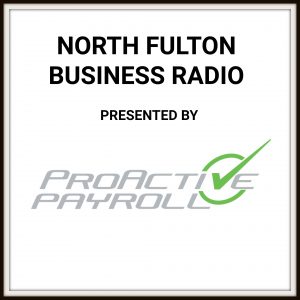

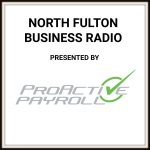







Your headline
Today’s episode of Women In Technology was made possible because of the generosity of Corey Rieck with The Long Term Care Planning Group. Learn how you can help tell a story like this one here.
Today’s episode of Women In Technology was made possible because of the generosity of Corey Rieck with The Long Term Care Planning Group. Learn how you can help tell a story like this one here.
 Today’s episode of Women In Technology was made possible because of the generosity of Corey Rieck with The Long Term Care Planning Group. Learn how you can help tell a story like this one here.
Today’s episode of Women In Technology was made possible because of the generosity of Corey Rieck with The Long Term Care Planning Group. Learn how you can help tell a story like this one here.
This is where your text will go. This is where your text will go. This is where your text will go. This is where your text will go. This is where your text will go. This is where your text will go. This is where your text will go. This is where your text will go. This is where your text will go.


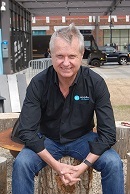
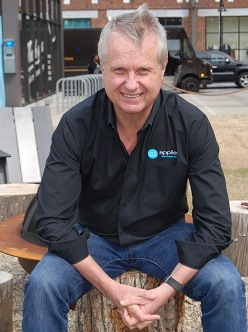

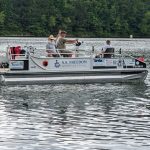


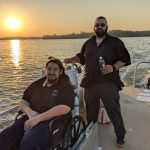


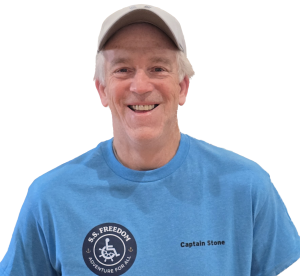
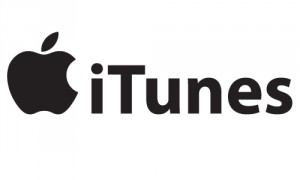
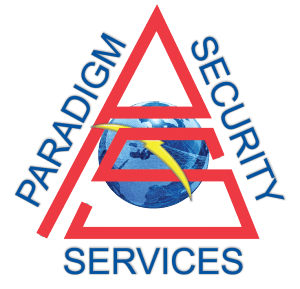
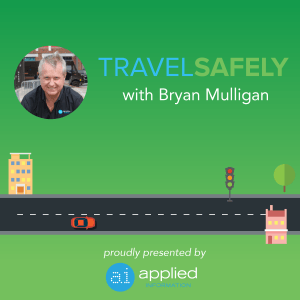
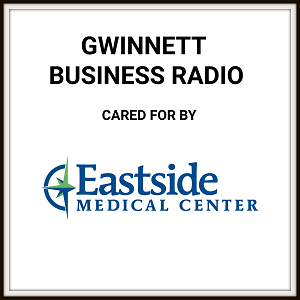
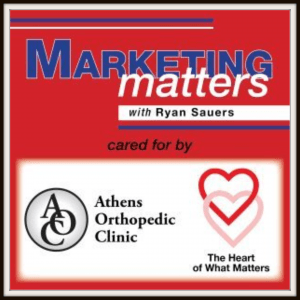
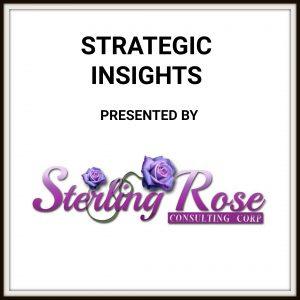
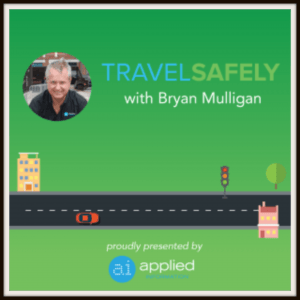

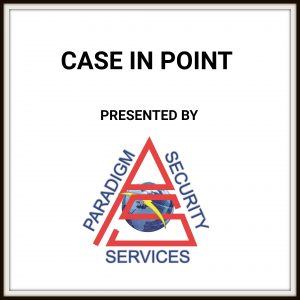
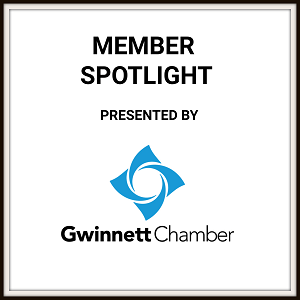
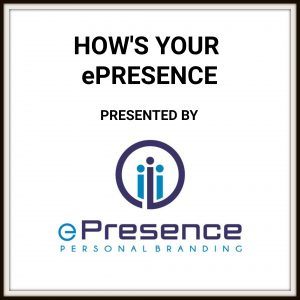

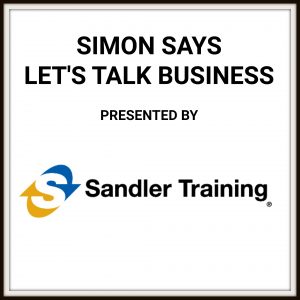
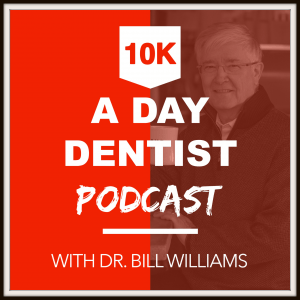
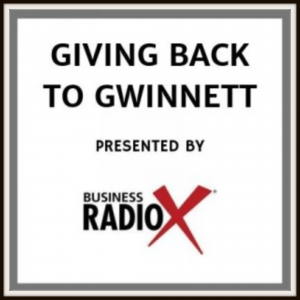
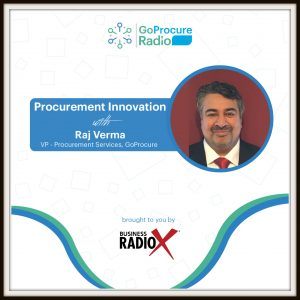





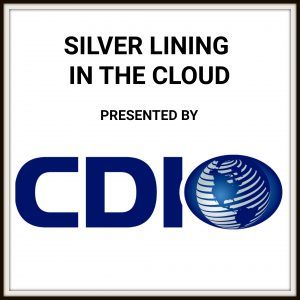

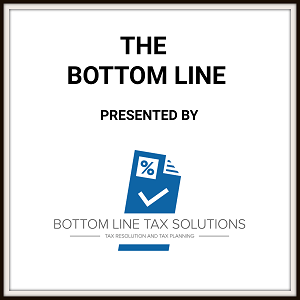

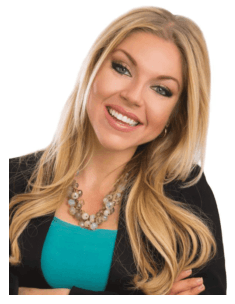
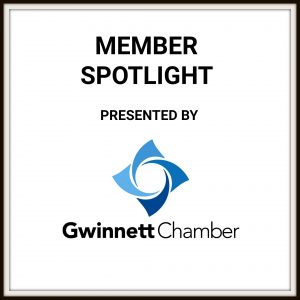

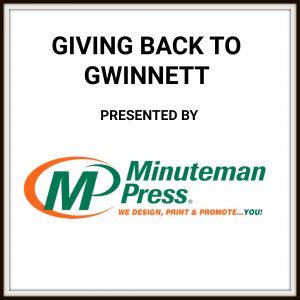
 Today’s episode of Women In Technology was made possible because of the generosity of Corey Rieck with
Today’s episode of Women In Technology was made possible because of the generosity of Corey Rieck with 














